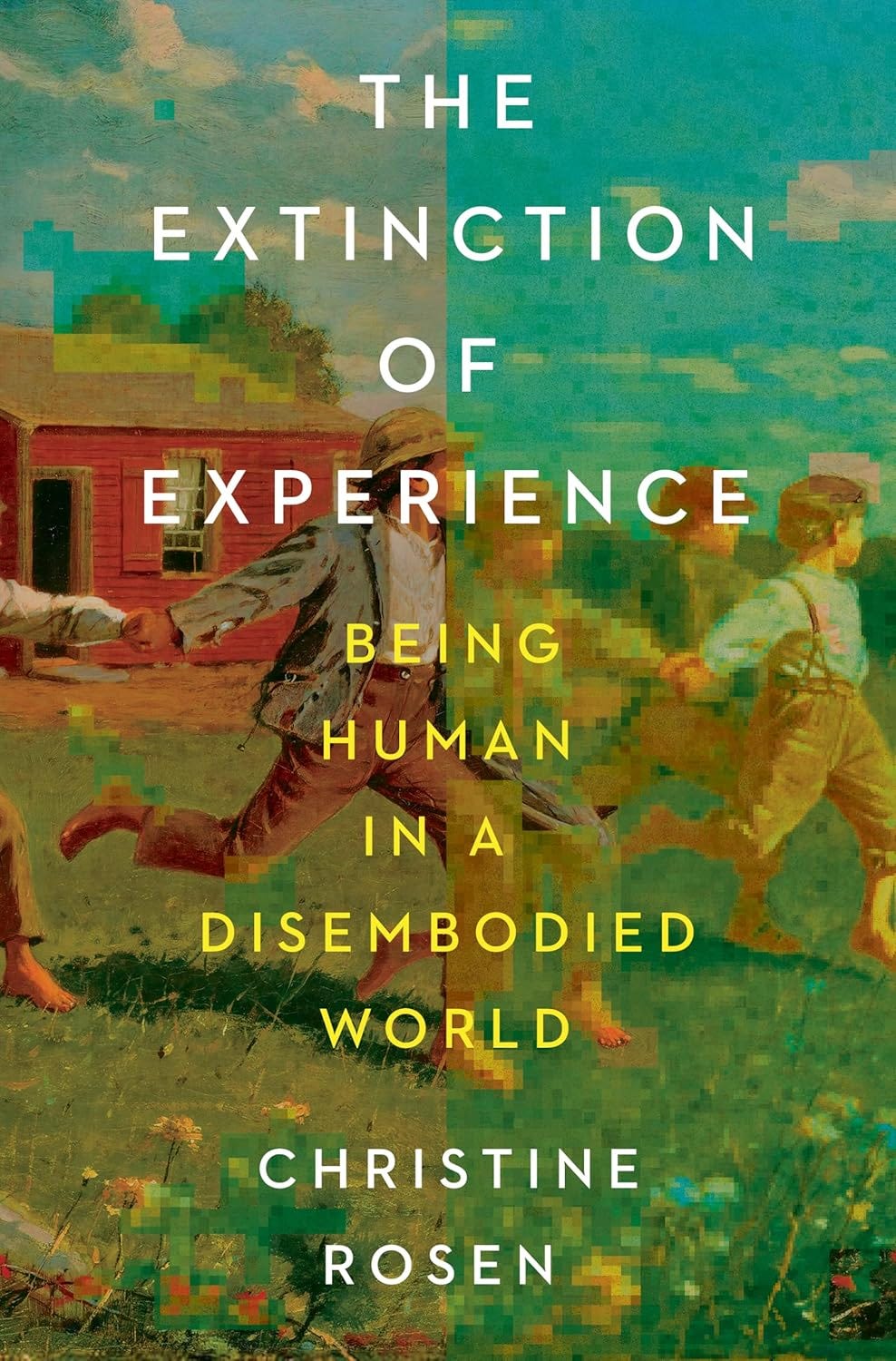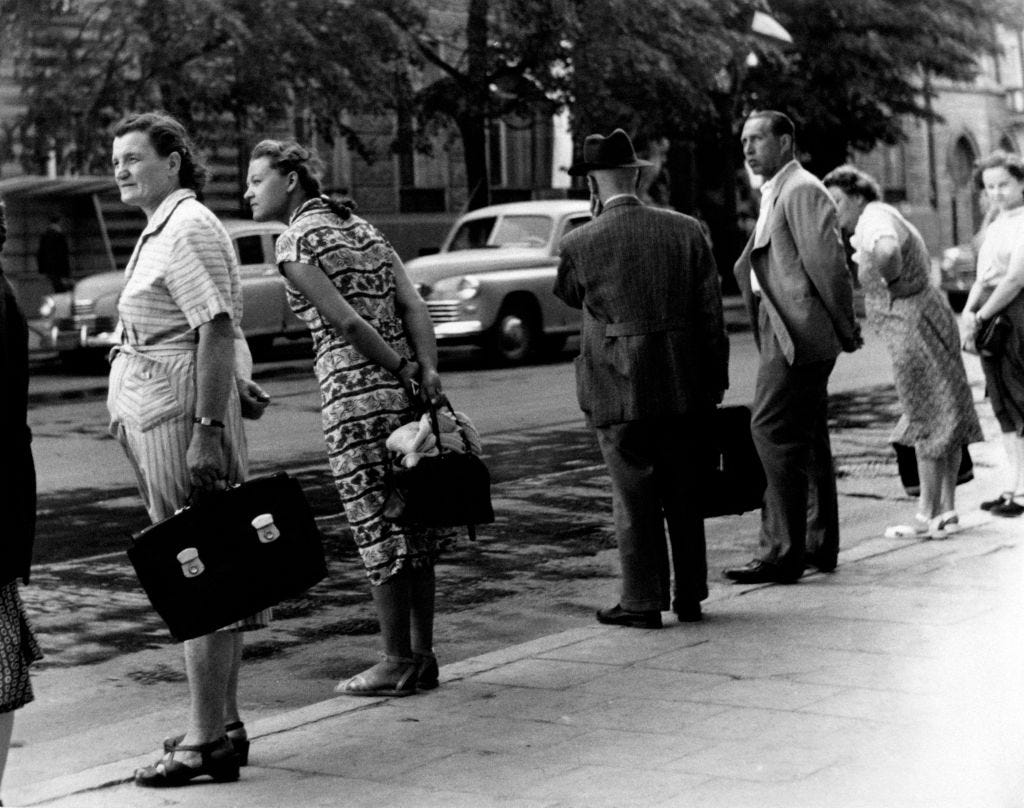As a child growing up in Florida in the ’80s, I went with my family to Walt Disney World many times. The main thing I remember is the seemingly endless waits for rides. My sisters and I would peevishly whine to our parents as we shuffled along, waiting and waiting. Occasionally, a lackadaisical Disney employee dressed as Goofy would wander by, but distractions were minimal. The experience of boredom was physical, like an itch.
Since then, Walt Disney Attractions has spent a great deal of time trying to alleviate the stubborn human experience of waiting. “It’s our number-one guest complaint,” remarked Dale Stafford, VP of development and planning, in the ’90s. Disney now refers to the places where you queue for rides as “scene ones”—as in, the first part of the performance.
Indeed, last time I took my children to Disney World, the waits were so carefully managed that they felt like part of the experience. We were greeted at the entrance to the Buzz Lightyear attraction by a cast member who declared, “There’s hardly a wait at all!” The display board gave an estimated time of ten minutes. As the line tracked back and forth, television screens broadcasted battle scenes between Buzz and his large purple nemesis Zurg. Every few seconds came the promising pings of cartoon weaponry. The lighting was low, to increase anticipation. Soon, we were shuffling onto the moving sidewalk that delivered us to our rocket ship. Had it only been ten minutes? Everything about this queue had been designed to prevent us from experiencing the real passage of time.
Waiting isn’t what it used to be. These days, we expect to be able to avoid the dullness of it—and not just when we are spending a day at a theme park. Nearly every moment of interstitial time can be filled with entertainment or communication. We turn to our smartphones to check email, text a friend, or play Candy Crush. It feels good to remove oneself mentally from the reality of waiting; our new and boundless capacity to escape tedium can feel like a micro-revolution. But the problem with revolutions is that they sometimes devour their children.
If the experience of waiting has changed—does that mean we have, too?
The novelist Milan Kundera once described speed as “the form of ecstasy the technical revolution has bestowed upon man,” and he is correct about its pleasures. Speed is often an improvement, a boon that eliminates the bane of “wasted time.” But what he, and we, might not have predicted is how quickly speed raises our expectations, how impatient we get if everything happens quickly.
Back in 2012, a granular study found that we abandon a video if it doesn’t start playing within two seconds—and that “viewers with better connectivity are less patient and will abandon a slow-starting video sooner.” In other words, those who are habituated to speed are least tolerant of life without it. In 2009, Forrester Research studied how long online shoppers were willing to wait for a page to load and found two seconds was the magic number; three years earlier, people had been willing to wait four seconds. In other words, even a few years into the internet’s short lifespan, our expectations for how long it should take to get something have changed dramatically. In the early days of the internet, in 2006, Amazon claimed that for every 100 milliseconds of time saved loading its pages, the company increased revenue by 1 percent. A millisecond is a thousandth of a second. Meanwhile, Google’s engineers engaged in a race against that millisecond; they found in 2012 that even a delay of 400—about the time it takes the eye to blink—is too long for people to wait for search results.
A decade on, where has this left us?
As life gets faster, we have become more impatient about everything, including the interactions of daily life. Not long ago, New York Times technology reporter Nick Bilton wrote a screed against what he called “time-wasting forms of communication.” For Bilton, who uses X to stay in touch with his mother, this includes most of the things that used to be called pleasantries.
“In the age of the smartphone, there is no reason to ask once-acceptable questions: the weather forecast, a business phone number, a store’s hours. But some people still do,” he complains, before quoting a source who confesses: “I have decreasing amounts of tolerance for unnecessary communication because it is a burden and a cost.”
The problem isn’t that Bilton and others prefer a world without pleasantries; such people have always existed. It’s their expectation that efficiency in human interactions is innately superior, an ideal that society should embrace. As technology scholar Evan Selinger has written, this model “turns maintaining important relationships into mere to-do list items.” The dystopian writer Aldous Huxley was, perhaps characteristically, more apocalyptic, arguing in a letter to George Orwell in 1949 that “a felt need for increased efficiency” would turn the world into a “nightmare.”
But though the speed of computer processing power can be measured quantitatively, the transformations in a culture’s tolerance for delay are qualitative. It is only when we step back—or, more likely, when we are forced into a situation where we must wait without distraction—that we are reminded of other ways of doing things.

Located about one hour south of Louisville, Kentucky, the Abbey of Gethsemani is home to a small community of Trappist monks. I visited in order to gain a different understanding of time—aware that this instinct was slightly cliché. As Brother Benet Tvedten of the Blue Cloud Abbey in South Dakota has noted: “Very few people want to enter monasteries these days, but it seems more and more people want to visit them.” It’s the opposite of the urge that takes us to Disney World; instead of seeking stimulation, you’re trying to escape it.
On our first evening at the abbey, a monk named Father Carlos greeted us by saying: “What is the main cause of our sins? Convenience. Seeking for ourselves convenience. Ease. Seeking to make things easier. Or entertaining.”
There is nothing easy or entertaining about life in the monastery. The prayer schedule is rigorous and begins:
3.15 a.m. Vigils
5:45 a.m., Lauds
6:15 a.m., Eucharist
And so on. The monks keep to the same routine, every day, every year, until death. They dress in the same clothes and eat the same food and share the same largely unadorned space. Much of the literature of monastic life emphasizes that this way of living forces you to confront yourself—your inner demons, restlessness, and wayward thoughts.
But this lifestyle also fosters a completely different understanding of what it means to wait.
To be kept waiting is generally viewed as a negative experience; to make someone wait often denotes hierarchy, dominance, or power in a relationship. And in many ways, this is the form the monks’ waiting takes: They subordinate themselves and their time to God’s work. The monks wait because they are listening for the voice of God, and they accept that it might take a lifetime before they hear it. Other religious traditions have waiting built into their rituals of worship—Quakers practice “expectant waiting” during silent meeting, for example. At the heart of these practices is the inculcation of patience, and the habit of listening.

I asked Father Carlos how he and his fellow monks balanced the demands of daily life—which at the monastery includes manual labor and community service—with contemplation. “Make time every day for silence,” he said. “And don’t make it a chore. Just sit in silence. This allows you to listen to God.”
Waiting, here, is a positive experience. The monks at Gethsemani are not merely longing to hear the voice of God. They are joyfully anticipating it, and so their wait isn’t painful but pleasurable. But in a world where a second is too long to wait for a video to load and a minute feels like an eternity, we’ve lost sight of how much joy we can get from anticipation, not only in a spiritual context.
A study of more than 1,000 Dutch subjects in 2010 examined the links between happiness and vacations. Researchers found, not surprisingly, that people looking forward to taking a trip were happier than those without vacation plans. More intriguingly, however, they also found that people who’d just been on vacation were no happier than those that hadn’t. The positive effects of going on vacation fade, even for travelers who report having had a good time.

The researchers theorized that anticipation played a crucial role in explaining this difference; planning, reading about, and arranging the details of a trip was a pleasurable experience for most people. Ultimately, it wasn’t the vacation itself that made people happy; it was looking forward to the vacation that made them happy. In other words, waiting for it.
But now that we have so many ways to fill even the smallest increments of time, opportunities for anticipation disappear. In fact, we are more likely to experience waiting as delay than anticipation—something negative, and inconvenient.
The fact is, the experience of waiting forces a negotiation between our present and future selves. Our present self wants immediately to devour that Cinnabon pastry we smell wafting through the airport. Our future self may need us to resist it, to maintain a healthy weight. And when people see their time as a valuable, fleeting resource, they become less likely to patiently pursue long-term goals.
Hence why, perhaps, researchers have linked the increase in Americans’ impatience to the rise in both obesity and debt, as well as the decline in savings, and the increase in gambling. We, as a society, are losing our ability to delay gratification, to patiently plan ahead. We value the new and the now, which is having a disturbing impact on—among other things—the realm of public discourse. In the media, we have come to prefer reaction to deliberation. We respect expertise less, because it takes time to develop and mature. In a culture used to immediate, brief responses, considered responses are often drowned out by a chorus of louder, less-informed voices.
Patience is a virtue. Good things come to those who wait. These phrases are cliché, but the evidence suggests they’re true. We benefit from appreciating that the most important things in life take time. From accepting that waiting is inescapable, no matter how much technology views it as a problem to be solved.
Being human means coping with those in-between moments, when we must do what is uneasy or uncomfortable, from tolerating a boring meeting, to bearing witness to another’s illness, to simply being stuck on a bus. But all these experiences present opportunities, as well as challenges—to daydream, to anticipate pleasure, to listen to a loved one, or confront our own selves.
Christine Rosen is a senior fellow at the American Enterprise Institute, a columnist for Commentary magazine, and a fellow at the Institute for Advanced Studies in Culture at the University of Virginia.
Excerpted from The Extinction of Experience: Being Human in a Disembodied World. Copyright (c) 2024 by Christine Rosen. Used with permission of the publisher, W.W. Norton & Company, Inc. All rights reserved.
To support The Free Press, subscribe today:












our Comments
Use common sense here: disagree, debate, but don't be a .